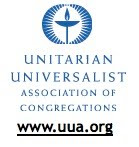A Matter of Taste?
I came upon a seminal bit of Phillip Johnson's stuff over at ScienceMusings.com (Blog) today in a piece called "Miracles" or in the comments on it. I've linked the object of the discusion in the title of this post. Here Johnson makes the case that science does not disprove religious dogma and the supernatural; it simply assumes it to be irrelevant, through its materialist focus. It seems a fair point to me. Is it possible that science is an overreaction to the realization that humans are biased to see intentionality in everything that happens? Is science immune to admitting any possibility of a supreme and supernatural being, by assumption? It certainly could be that's true.
If so, it is clearly by application of Occam's razor, which posits that the simpler story is always to be preferred, when faced with a choice of two different interpretations, in the absence of any clear differentiating evidence. Note the qualifiers on that statement. A good intelligent design advocate would say that complexity is of itself evidence of intention and design. Whereas, a good scientist would say that complexity can arise naturally and that self-organization is a property of matter in some circumstances. It's even a property of numbers and algorithms, clear of any matter.
So it seems that the biggest questions must be answered as matters of personal taste and the making of bets on the future, unless or until direct evidence can be found. We have our choice of attributing that which we cannot otherwise account to deliberate intentionality on the part of a supreme being, or we can regard it as a challenge to explain otherwise. That is, we can blame spooks, gremlins, or gods if we like, with no apparent guilt concerning the lack of evidence. Or we can blame the inherent complexity of nature and vow to keep seeking to understand what we do not now understand.
Your choice! But I hope you'll pardon me if I regard ID advocates as quitters and nay-sayers who would find the universe unsatisfying if its ultimate mysteries were removed. And yet, there is common ground here, if scientists and materialists would admit that part of what they find fascinating about the universe is that which we still do not understand.



 Click to enlarge
Click to enlarge









